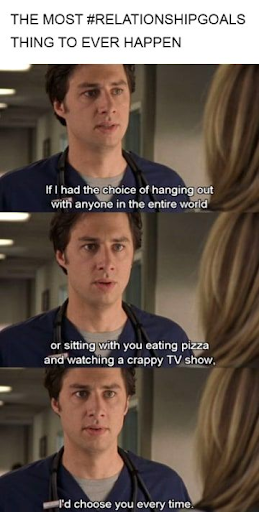From the Author’s Desk: Worldbuilding 101: Diversity in Relationships

An important aspect to consider any time you are creating your world is how the inhabitants there interact with one another. You don’t need to be writing a romance to have relationships between characters, and those parameters should be clear to your readers.
Here are some questions to consider when building the relationships in your world:
- What does the average relationship look like in your world? Describe the typical romantic relationship.
- What does an atypical romantic relationship in your world look like? Describe a relationship that exists but would surprise others.
- Is gender the deciding factor for one’s role in the relationship? How does gender present in your world? How are genders defined in your world (if gender is the social expectations associated with one’s assumed sex while sex is the biological determination using physical attributes)?
- How many sexes exist in your world? Are there same-sex relationships? How does society view same-sex couples? In Prince’s Priest by VC Willis, the scandal is that the relationship is between a vampire prince and a human priest. The fact that they are both men is an expected option in that world.
- How do people feel about relationships between classes? What about relationships between races? How does the average person feel about people from different places being in a relationship?
- How does a typical relationship progress? Describe the usual steps of a courtship (meeting, wooing, dating, flowers, sex, meeting families, moving in together, proposal, marriage, family, children, etc.).
- Do people choose their partners, or are relationships arranged by family members? Are arranged marriages the norm? Are they outdated or outlawed? If they are a thing, how do families determine a fitting suitor?
- How do couples introduce prospective partners to their families? Is this an important step in the courtship process or just a casual affair?
- Do couples live together (before/after marriage)? How does society feel about those who break this expectation one way or another?
- Do couples get married, or does cohabitation mean they are an official relationship? Which relationships are recognized as official by the government? Does marriage matter, or is it just a minor bit of paperwork?
- What does a typical wedding ceremony look like? Who attends? Who speaks and what do they say? Does someone need to vouch for the couple or forever hold their peace?
- Do couples need permission to marry? From whom? Is there a waiting period, or can people get married right away?
- Do people elope to Vegas or run away to be together? How does society feel about this behavior? Is it cute or romantic, juvenile or crazy?
- Do people change their name when they get married? Is the new member fully embraced by the partner’s family? (You’re a Jones now!)
- Is there a physical sign that shows a person is married (ring, hairstyle, article of clothing, etc.)? Can someone tell at a glance if a person is in a committed relationship or not?
- Do couples marry for love? Convenience? A combination of both? Why do most couples pair up?
- Can anyone marry anyone, or are there rules? Who establishes these rules? What happens to those who break the rules? Are they ostracized like Anna Karenina or forgiven like Count Vronsky?
- What are the rules regarding marriage? Who established them? Why?
- Is marriage about procreation and children and continuing the family name? How does society feel about childless couples? What is the general view on couples having children?
- In terms of children, do couples value one sex over another (boys over girls)? How about twins or triplets, etc.? Are such children a blessing by the gods or a curse?
- Consider the maternal mortality rate during childbirth in your world. Is childbirth a dangerous proposition for women in your world? (If only women can give birth.)
- Are relationships limited to two people, or do people support multiple partners in relationships? How does society view thruples/poly-groups? In Signs of Affection by Lynn Chantale, the main character courts a love interest who practices polyamory.
- How does the average person define love in your world?
- Is love something that happens to a person (over which there is no control)? Do people fall in love like they fall off a cliff? Is love a conscious decision made by a person? Can a person choose to fall in love?
- Is love an expectation in relationships? Or is being part of a relationship more commonly a matter of convenience and love is found elsewhere?
- How do people view adultery? How do people view emotional affairs? Physical affairs? Where is the line when a relationship has become adulterous (a glance, a stolen kiss, a long hug, sex)?
- Are there established punishments for breaking a vow to a partner? How are they enforced? Are they different depending on who has committed the offense (women are killed while men are chastised)?
- Is love predetermined by an outside force? By what/whom? Are certain lovers fated to be together in your world?
- Is there a deity of love? Who is it? What powers do they have? How do people view this deity? How much control does a love deity have over the inhabitants?
- Are there love potions/love spells in your world? How do such things work? How long does a love potion/spell last? What are the long-term effects of a love potion? (Are the children of such unions born unable to love like Voldemort?)
- Do people believe in love at first sight? How do people feel about such relationships?
- Is love an acceptable excuse for irrational behavior? Do people excuse “crazy” behavior on account of love?
- Does love have physical symptoms? Can others see that a person is in love?
- Are the majority of the inhabitants romantics or cynics when it comes to love? What do your characters think about this?
- What does the average person think about relationships in your world?
Bonus Questions:
- What kinds of familiar relationships are you featuring in your story? Why did you choose those and not others?
- What new types of relationships appear in your story? How are they different from traditional real-world connections?
- How much of the relationships depicted in your story are a reflection of your own experiences? What elements did you add to the relationships and why?
- How important are relationships in your story? Do they reflect real-world behavior, or are they exaggerated in some way? If so, how and why?
- If your story were turned into a film, what category would Netflix put it under: romance, romantic comedy, drama, horror, etc.? How much of the distinction is based on the types of relationships you include in your story?
Thinking more broadly about how relationships work beyond the scope of the story you’re telling allows you to write a story in a well-developed world, something readers will appreciate as they get to know your characters and the world they inhabit. For more Worldbuilding Questions, check out The General Worldbuilding Guide!

